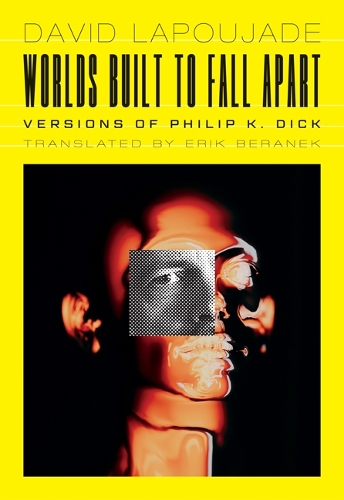
Worlds Built to Fall Apart: Versions of Philip K. Dick
(Paperback)
Publishing Details
Worlds Built to Fall Apart: Versions of Philip K. Dick
By (Author) David Lapoujade
Translated by Erik Beranek
University of Minnesota Press
University of Minnesota Press
11th September 2024
United States
Classifications
Tertiary Education
Non Fiction
Science fiction
Fantasy
Philosophy
813.54
Physical Properties
Paperback
176
Width 140mm, Height 216mm, Spine 9mm
227g
Description
Philosophically analyzing the work of one of the twentieth centurys most popular, and peculiar, science fiction authors
Despite his enduring popularity, Philip K. Dick (19281982)whose short stories and novels were adapted into or influenced many major films and television shows, including Blade Runner, Total Recall, The Truman Show, and The Man in the High Castlehas long been a marginal figure in American literature, even in the science fiction genre he helped revolutionize. Here, an influential French philosopher offers a major new perspective on an author who was known as much for his eccentricities and excesses as for his writing. For David Lapoujade, it is precisely the many ways in which Dicks works seem to hover on the brink of losing all touch with reality that make him such a singular figure, both as a sci-fi author and as a thinker of contemporary life.
In Worlds Built to Fall Apart, Lapoujade defines sci-fi as a way of thinking through the creation of worlds and argues that Dicks way of doing so is by creating worlds that fall rapidly to pieces. Whatever his mechanism to bring this about (drugs or madness, alien satellite transmissions or encroaching parallel universes), the effect is always to reveal reality to be a construction, in which certain people determine what appears as real to the rest of us. Orienting Dick within philosophy and drawing connections to a wide variety of other thinkers and artists, this remarkable reading shows how he proposes unstable, fluctuating futures in which tinkering with reality has become the best means of resisting total control.
Engaging with most of Dicks published works, as well as with several of his essays and his notorious psychic autobiography The Exegesis, Lapoujade hones in on the war of the psyches that underlies Dicks critique of reality. In doing so, he puts Dicks work in conversation with a vast array of subjectsfrom cybernetics to schizoanalysis, and from Pop art to David Lynch, J. G. Ballard, and William Burroughsrevealing Dicks oeuvre to comprise a profound reality defined by artifice, precarity, and control.
Author Bio
David Lapoujade is professor of philosophy at Universit Paris 1 Panthon-Sorbonne, whose numerous books include The Lesser Existences: tienne Souriau, an Aesthetics for the Virtual and Powers of Time: Versions of Bergson (both from Minnesota).
Erik Beranek is a writer and editor and has translated works by Jacques Rancire, tienne Souriau, Michel Foucault, and David Lapoujade.
